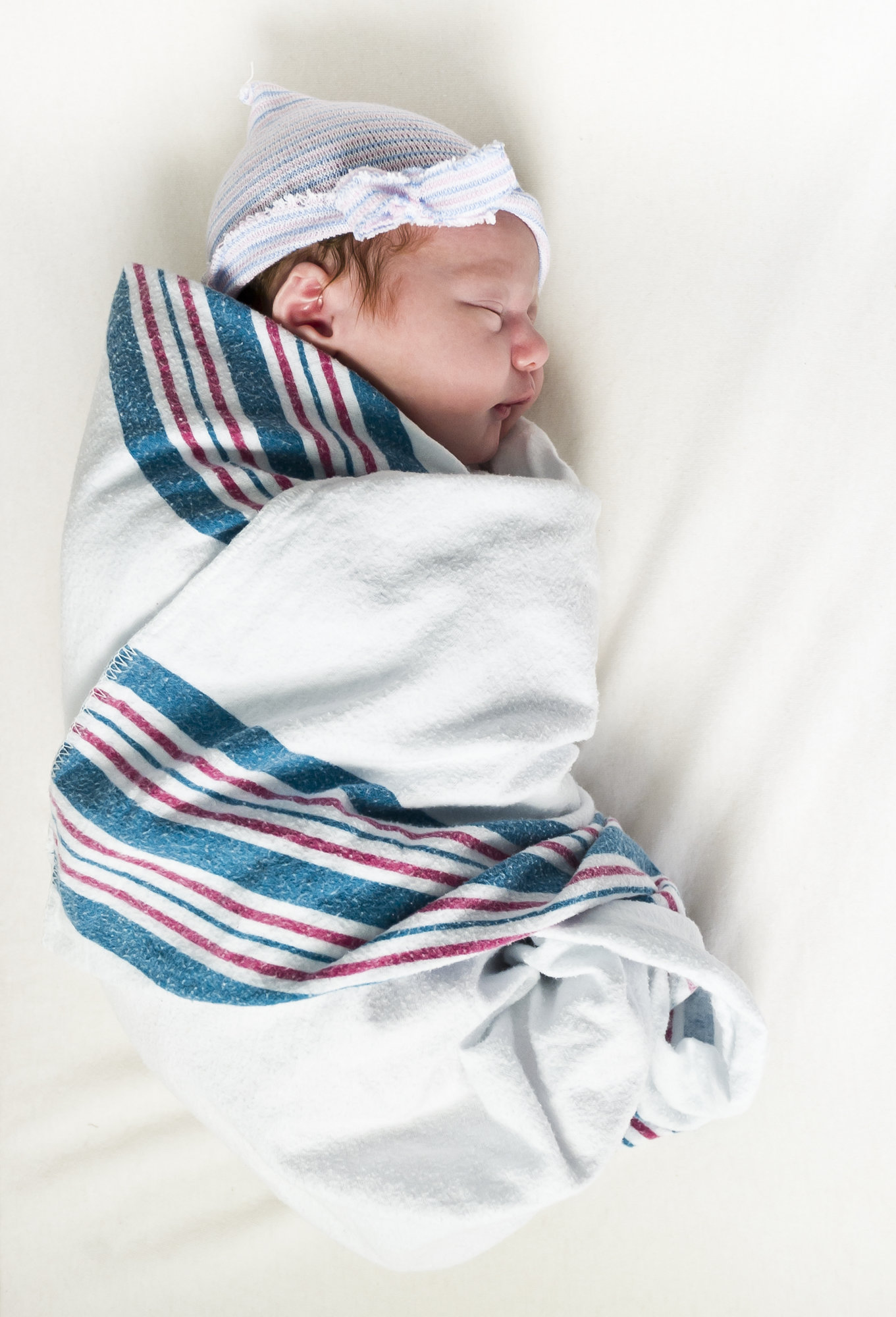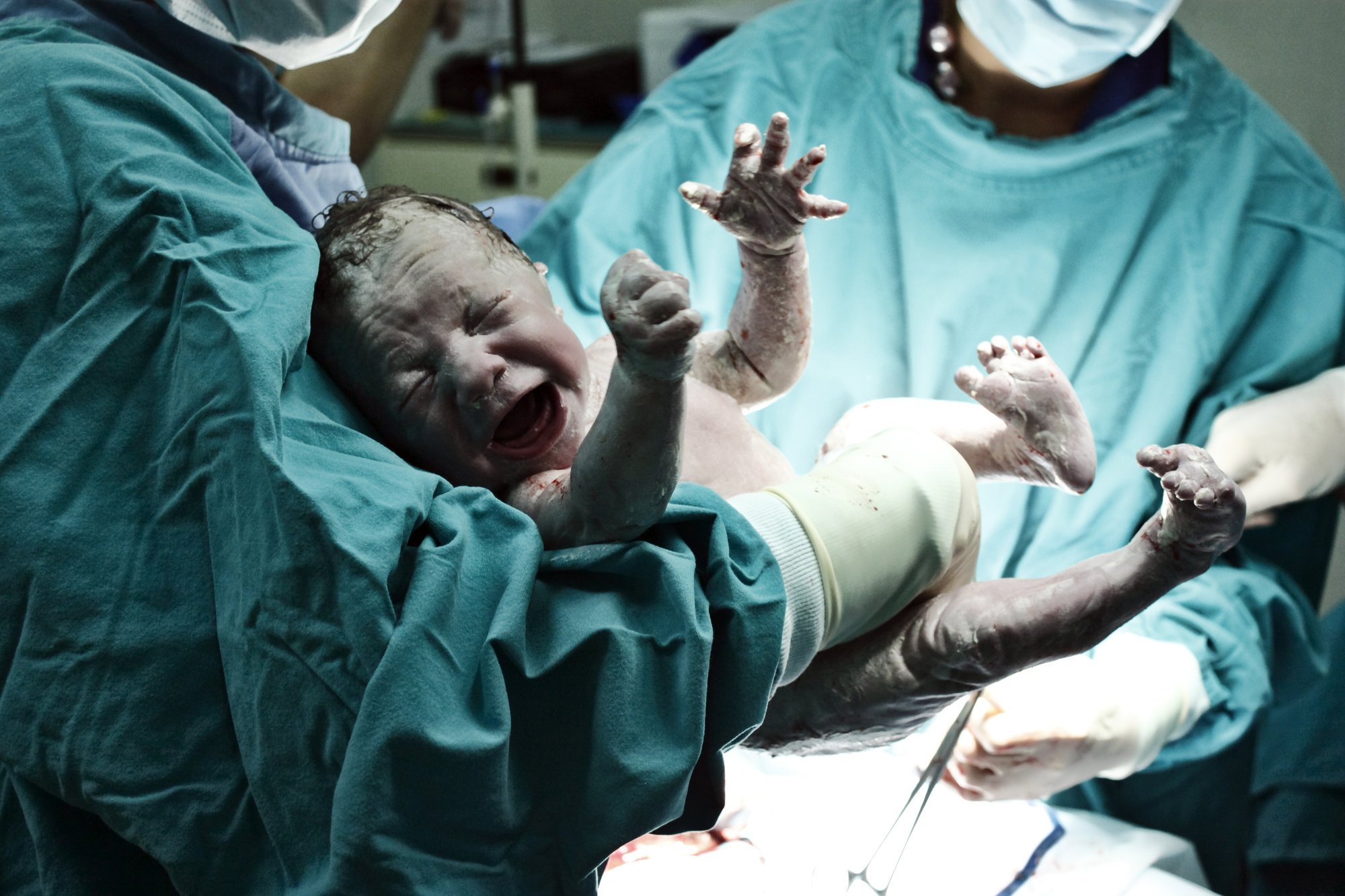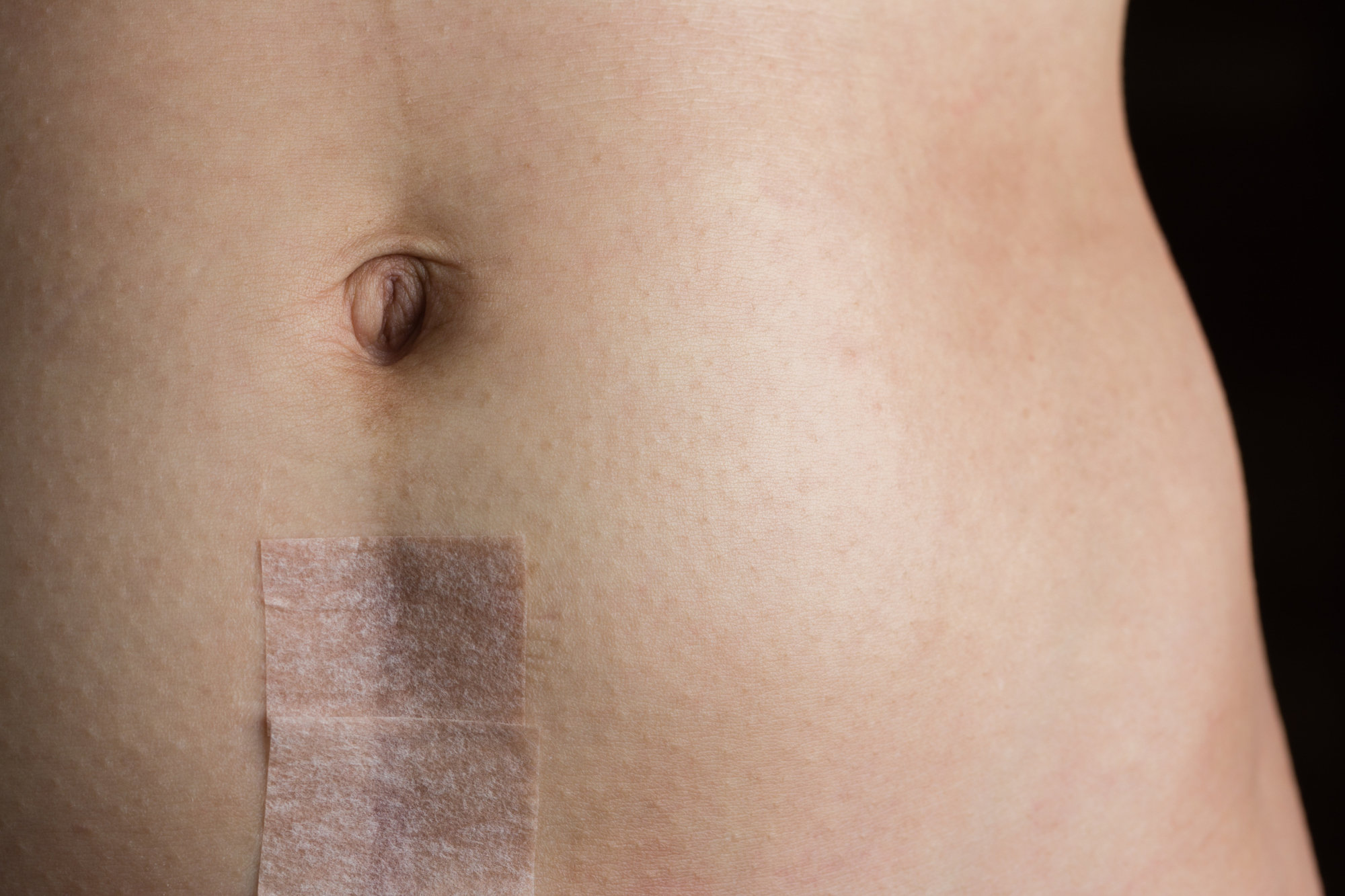It doesn't matter whether it's a planned or emergency C-section, the thought of having major abdominal surgery to delivery your unborn child is a daunting thought. A new study has brought new facts to light about babies born via C-section. Find out more facts and read all you should know about having a cesarean.
Read more ¿Qué más?: 10 Ways C-sections & vaginal births are basically the same
Image via Thinkstock
Baby may be swiped with vaginal fluid

A recent study published in Natural Medicine, found that babies born via C-section aren't exposed to healthy microbes living in the mother's birth canal. This could cause an increased risk to obesity, asthma and autism. Researchers swiped the vaginal fluids on 18 infants and found that the treatment exposed them to the same level of beneficial microbiota as vaginally delivered babies.
You won't get privacy "down there"

Trust me, you'll lose count of how many people check you "down there." Although you won't deliver vaginally, the vagina is still involved in the delivery and recovery process. Before your surgery, a nurse will insert a catheter. Luckily, you won't feel a thing due to the anesthesia.
Cranky baby

Before the delivery, a sheet will be placed by your chest to protect you from viewing the operation. Although you won't see your baby right away, you'll feel some tugging and then hear their cry once they exit the womb.
You'll probably get the shivers

You'll probably have uncontrollable shivers during and after your baby's delivery. This is due to the effects of the anesthetic and the major blood loss you experience. It'll continue during your recovery period, but don't worry–it will go away within a few hours.
Moving around will hurt

Whether it's walking, sitting, coughing or sneezing, moving around or using your abdominal area in any way will hurt. You'll be given painkillers to soften the discomfort for the next several weeks. Don't worry, you will feel normal again.
Delayed bonding time

You probably won't be able to hold your baby immediately after birth since you'll be recovering. Although your bonding will be delayed, you can practice skin-to-skin contact or try baby massages to bond with your baby.
Potty problems

A side effect of the medications and anesthesia is constipation. Don't worry, the poop will come. Ask for stool softeners to make the experience less painful when it does.
Swollen legs and ankles

While you're on the operation table, you'll be pumped with fluids, which will cause lots of swelling in your legs, feet and hands. You'll feel swollen for a week or up to 10 days after the surgery. It'll take time, but you will feel normal again.
Your scar will look weird

My C-section scar developed a bump over the top of the incision area. The scar will most likely look weird for several months. Once the bandages are removed, you'll notice the scar get darker. That's totally normal!
You'll have heavy bleeding

Be prepared for heavy bleeding. It'll last several weeks and you won't be able to use a tampon. The bleeding occurs due to trauma in the area during the delivery process. Talk to your doctor if the bleeding doesn't subside during your six-week visit.




